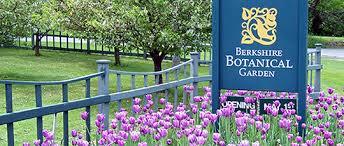
Berkshire Botanical Garden, Project Native Move Toward Merger
 |
STOCKBRIDGE, Mass. — The trustees of the Berkshire Botanical Garden and Project Native have been discussing for some time the benefits of joining forces, and last week both boards unanimously approved motions to pursue a combination.
Both nonprofit groups are still working out details but are optimistic that a final agreement can be reached and that the deal will close by the end of the year.
"Our missions are in complete alignment," said Matt Larkin, chairman of the board of BBG. "The importance to the well-being of our environment of preserving the native elements of our habitat has never been better understood or more at risk. This has been a major subject of our educational programming and field trips for many years, and combining with the resources of Project Native will make a huge difference to the quality and effectiveness of the service we provide to our community."
"This will be a great partnership," said Project Native Board Chair Erik Bruun. "Our very different resources and capacities will advance our common mission of environmental education and promoting native habitats. Adding the garden's powerful educational and marketing know-how will draw attention to our work better than we could alone."
The Berkshire Botanical Garden has grown significantly in recent years in terms of its revenue and programs. Its Education Department has been strengthened by recent hires and has expanded its reach into local schools and its Farm in The Garden Camp, as well as added more field trips to its schedule.
Project Native was founded in 2000 as part of the Railroad Street Youth Project. Project Native became its own organization in 2004, transforming a former 54-acre farm on North Plain Road in Housatonic into a wildlife sanctuary and native-plant nursery with excellent propagation facilities and a native butterfly house. Project Native is less than 10 minutes by car from the Berkshire Botanical Garden in Stockbridge.
Tags: botanical garden, gardens,















